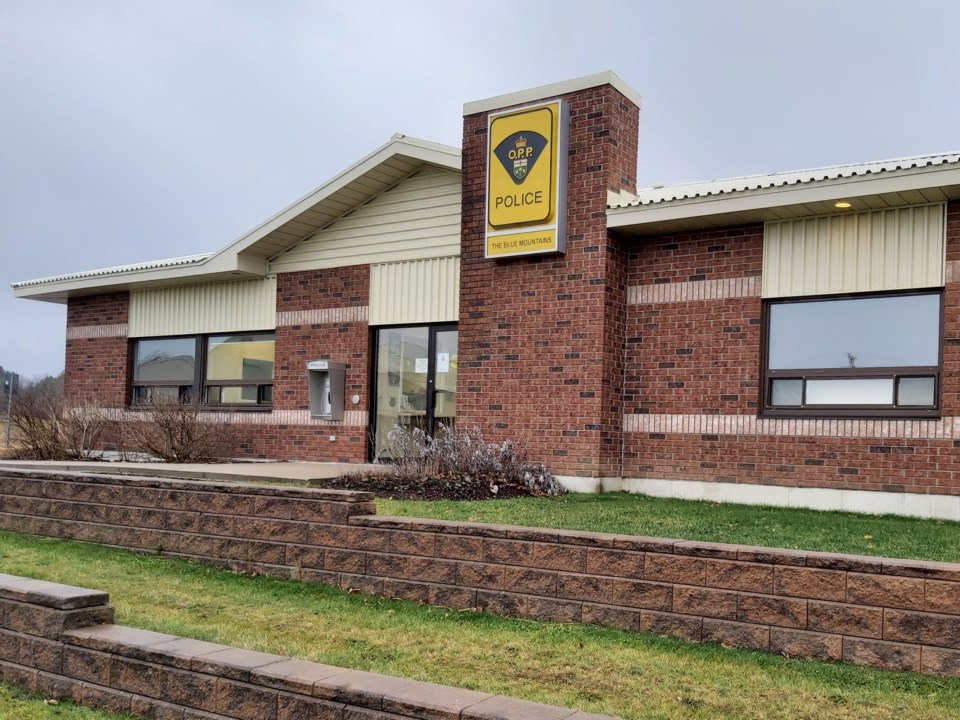Local authorities say there has been a spike in the number of calls for mental health support over the past year as the region muddled through the COVID-19 pandemic.
Since June 2020, the Blue Mountains/Collingwood OPP Mental Health Response Unit (MHRU) report responding to 1,278 individuals, which includes 412 face-to-face interactions through home visits or walk-ins at the detachment office.
The MHRU consists of an OPP officer and a crisis worker who ride together in an unmarked car for deployed or immediate response to people who are in a mental health crisis. The unit was established at the local OPP detachment in 2016.
“We respond to calls for service or threats of suicide or suicides in-progress,” explained OPP Constable Clyde Vivian and member of the MHRU during a Blue Mountains Police Service Board meeting held on June 16.
“We are also assisting people with other types of mental health emergencies, such as psychotic breaks and persons who appear to be or are experiencing situational stress. Given the pandemic, I think we were well aware that there's a lot of additional stress going on nowadays,” he continued.
In comparison, in 2018 the MHRU responded to approximately 200 first-response calls and completed an additional 365 follow-up visits and phone calls.
“We typically see folks that have been diagnosed with schizophrenia, psychosis, bipolar, depression, anxiety, post-traumatic stress disorder, autism, brain injury and/or dementia,” explained Amanda Kain-Johnson, member of the MHRU.
“Of the 1,278 contacts, 21 were apprehensions under the Mental Health Act, which is an apprehension rate of six per cent,” she added.
Vivian said that many of the increased calls over the past year stem from the community's younger population.
“There is a huge increase in matters where children are suffering. A sharp increase in mental health issues. We're getting calls from parents to assist in that regard,” he said.
“The kids helpline alone just recently reported that there have been four million calls and texts coming from the young population seeking help. Half of those calls have actually occurred in Ontario. So, we're talking about two million people who are reaching out for additional support,” Vivian continued.
He added that part of the MHRU’s goal is to try and divert people who are suffering mental illnesses from the criminal justice system.
“Even though there are, at times, an overlap, and if there are criminal matters, we always have to hold people accountable for what they do. But, if mental illness is all part of that, we'd certainly want to let the courts know,” he said.
Through its procedures, the MHRU conducts the same mental health assessment that would occur in hospital, which Kain-Johnson said saves time and streamlines the individual's care so that they are not required to re-tell their story and situation once they are transferred to a hospital, mental health facility or their family physician.
“The unit's capability of completing a mental health risk assessment in the community in real-time can divert unnecessary emergency department visits and it can decrease the stigma and trauma associated with apprehension as well,” she said.
Collingwood/Blue Mountains OPP Detachment Commander Insp. Mary Shannon said the MHRU did receive some additional funding at the onset of the pandemic, which allowed the unit to increase its operational capacity from five to six days a week. Something she hopes will continue, post-crisis.
“Certainly as we progress through this our goal is to seek and keep that funding post-COVID. Because there's a demonstrated need and I think the savings that this unit provides, not only in policing but in healthcare, is invaluable,” said Shannon.
She added that the number and volume of calls demonstrate how vital it is to have the MHRU operating in the community.
“Our concern is that as our society gets back to normal post-pandemic, if you listen to the experts, the need is only going to increase,” Shannon continued.
According to Vivian, 84 per cent of all OPP detachments in Ontario now have a MHRU or similar program. In addition, crisis workers have also been situated in the province’s emergency communications centres to assist on calls where a mental health crisis is apparent.
“It's unfortunate that the service is being required as much as it is, but I think the board is very pleased that we are able to respond to that need with the kind of success that you folks have outlined here,” added Jim Oliver, chair of the Blue Mountains Police Services Board.



